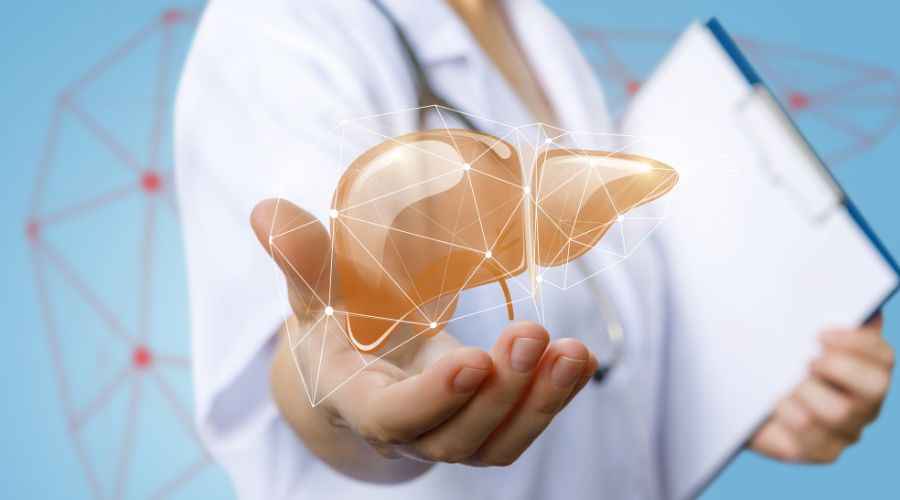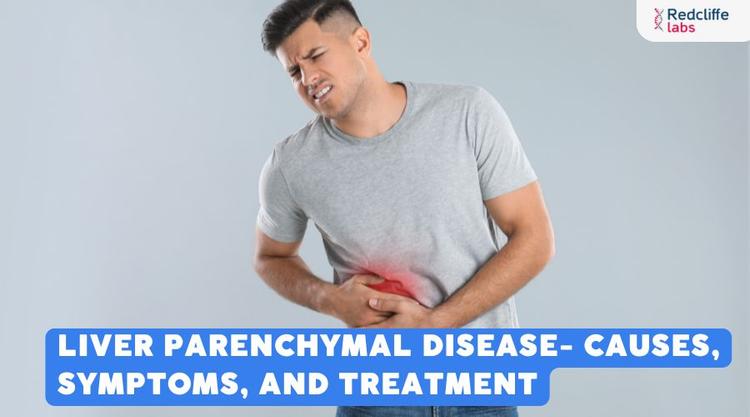Fatty Liver Grade 2: Symptoms, Causes, Risks, & Prevention

Medically Reviewed By
Dr. Ragiinii Sharma
Written By Muskan Taneja
on Jul 29, 2024
Last Edit Made By Muskan Taneja
on Jul 19, 2025

There is a myth that only people who consume alcohol have a chance of fatty liver. But do you think that 40% of people in India suffer from non-alcoholic fatty liver?
Fatty liver grade 2 is a medical illness that affects 25-30% of the world population, including both non-alcoholic and alcoholic liver disease. Unlike other diseases, as the disease grows severe, no symptoms appear.
Fatty liver grade 2 is in a moderate state. But can medical professionals can cure it or not? What are the precautions for fatty liver? Today’s blog will cover all information related to fatty liver grade 2.
Understanding Fatty Liver
Fatty liver is an illness when 5% to 10% of the liver is covered with fat. Steatosis is a name for fatty liver. Based on the fat percentage, there are three classifications of fatty liver:
- Fatty liver Grade 1 (mild)
The fat accumulated percentage is 5% to 33%.
- Fatty Liver Grade 2 (moderate)
The fat accumulated percentage is 34% to 66%.
- Fatty Liver Grade 3 (severe)
The fat accumulated percentage is 66% and above.
Also, there are two types of fatty liver: Non-alcoholic fatty liver disease (NAFLD) and alcoholic fatty liver disease (AFLD). The names define themselves. Patients with NAFLD have no connection with alcohol, while patients with AFLD are highly connected with alcohol.
Also, read https://redcliffelabs.com/myhealth/liver/what-is-fatty-liver-causes-symptoms-and-treatment/
15 Signs and Symptoms Of Fatty Liver Grade 2
The symptoms don’t appear unless fatty liver reaches moderate or cirrhosis. However, certain signs detect fatty liver grade 2 symptoms.
- Vomiting
- Weight-loss
- Lack of appetite
- Yellow skin color
- The white portion of the eyes may turn yellow
- Pain in the upper right side of the abdomen
- Swollen legs and abdomen
- Exhaustion
- Debilitating
- Bloating
- Sleep disturbance
- Itchy skin
- Jaundice
- Easy bleeding
- Fluid buildup in the abdomen

10 Causes of Fatty Liver Grade 2
Several medical illnesses present the actual cause of fatty liver grade 2. However, research is still being done to determine the causes of NAFLD. Here are 10 causes:
- Obesity
- Type 2 diabetes
- Medical illness
- Abnormal levels of fats in the blood
- High level of cholesterol
- High level of LDL cholesterol
- Low levels of HDL cholesterol
- Alcohol
- Hereditary factor
- Nutrition and gastrointestinal system
- High-sugar food
- Relation between NAFLD and gut flora
- Metabolic syndrome
- Large waist circumference
- High level of HDL cholesterol
- High level of triglycerides
- High blood sugar level
- High blood pressure
What are the Risks Associated With Fatty Liver Grade 2?
Fatty liver grade 2 is in a moderate state, giving a lower risk of severe damage or cirrhosis. Here are certain risk factors associated with fatty liver grade 2 disease:
- Hypertension
- Hypercholesterolemia
- Hepatitis C
- High cholesterol levels
- Steroids
- Excessive and unwanted weight gain
- Obese
- Type 2 diabetes
- Sleep disorder
- Alcohol consumption
How To Diagnose Fatty Liver Grade 2?
If you suspect any signs or symptoms, consult your doctor before it becomes serious. They will follow a three-step examination:
- Medical history
- Physical examination
- Screening or lab test
Medical History
Before the diagnosis, the doctor might ask you if there is any prevailing history of fatty liver grade 2 illness. This will clear doubts on whether it is hereditary or not. They might also ask about your diet and alcohol consumption (if you consume) to estimate the cause of liver disease or fat present in the liver.
Physical Examination
A doctor will examine your body. They will check your body weight and height to calculate your body mass index. It can help in the diagnosis procedure. Physical examination determines symptoms such as enlarged liver, type 2 diabetes, enlarged spleen, fluid in the abdomen, muscle loss, and dark skin patches over knuckles, elbows, and knees.
Screening and Lab Tests
After examining your body, they might suggest some imaging and lab tests, including blood tests, imaging tests, and liver biopsies.
- Blood Test- A doctor may use blood tests to look for increased levels of the liver enzymes alanine aminotransferase (ALT) and aspartate aminotransferase (AST), which can indicate fatty liver disease. Blood tests can also help identify or rule out advanced liver fibrosis or scarring.
- Imaging tests: Doctors may use imaging tests such as ultrasound, CT scans, and MRI to see whether there is fat in a person’s liver. However, these tests do not show inflammation, so a doctor cannot use them to confirm a diagnosis of fatty liver disease.
- Liver biopsy: A doctor will take a small tissue sample from the person’s liver during a liver biopsy. A pathologist will then examine the tissue for signs of damage or disease.
If they suggest you a lab test (blood test), consult with Redcliffe Labs. We ensure accurate test results at an affordable price. We are available in PAN India. Redcliffe Labs will make your testing process easy.
Also, read https://redcliffelabs.com/myhealth/liver/what-is-fatty-liver-and-how-to-diagnose-it/
How To Prevent Grade 2 Fatty Liver Disease?
If you see the above-mentioned symptoms and signs, take instant precautions. But, if you are concerned about testing, do this to reduce the risk of fatty liver disease:
- Indulge in physical activity
- Get regular check-ups
- Eat a balanced and nutritious diet
- Limit portion diet
- Maintain moderate weight

The Final Words
Taking precautions and effectively addressing the fatty liver is important for curing Fatty Liver Grade 2 disease. It is important to take precautions and work effectively on the fatty liver. Book your test with Redcliffe Labs. We are a trusted diagnostic lab, trusted by over 50,000 doctors. Our services offer comprehensive 3600 tests. We provide a liver function test with a home sample collection service.
Leave a comment
5 Comments
Jai Prakash
Jan 16, 2025 at 11:39 PM.
Hello mam Meri mummy USG karwaya hai usme grade 2 fatty liver btaya h Please suggest me mam
Myhealth Team
Jan 17, 2025 at 7:33 AM.
Grade 2 fatty liver indicates moderate fat buildup in the liver. Manage it with a healthy diet, regular exercise, weight management, and avoiding alcohol. Include fruits, vegetables, and whole grains in meals, and limit oily and sugary foods. Consult your doctor for liver function tests and treatment to prevent progression.
Akhilesh kumar singh
Dec 5, 2024 at 6:36 PM.
Mera aims delhi me aj fybroscan hua hai fat 290 and ultrasound me stage 2 bataya gya hai ..pls suggest
Myhealth Team
Dec 6, 2024 at 5:53 PM.
आपके फैटी लिवर का फाइब्रोस्कैन रिजल्ट 290 और स्टेज 2 है, जो मॉडरेट फैटी लिवर को दर्शाता है। इसे रिवर्स करने के लिए हेल्दी डायट लें, नियमित व्यायाम करें, वजन नियंत्रित करें, और शराब से बचें। हेपेटोलॉजिस्ट से सलाह लेकर नियमित फॉलो-अप करें।
Mana Miah
Dec 3, 2024 at 4:15 PM.
Mam my LFT test result sgpt 62 are high or normal
Myhealth Team
Dec 4, 2024 at 7:44 AM.
Hi,
Your SGPT level is slightly higher than the normal range. Please contact to a doctor for further evaluation of your condition.
Thankyou
Nootanprakash
Nov 16, 2024 at 3:18 AM.
Very fine usefull informational becoming guide line. Thanks.
Myhealth Team
Nov 16, 2024 at 10:05 AM.
We are glad you have liked the information!
Karthik
Aug 16, 2024 at 1:29 PM.
Hi, I am a heavy drinker and my GGT level elevated to 880.and now I am strictly abstinence with the alcohol.also I would like to know that if bile ducts were damaged .will it be reversed though stopped the alcohol .and also how much time it takes to get back to normal?
MyHealth Team
Aug 17, 2024 at 11:17 AM.
Stopping alcohol is key to recovery. If bile duct damage isn’t severe, it may heal over time. GGT levels could take weeks to months to normalize, depending on the damage. Continue to avoid alcohol and follow up with your doctor regularly for the best outcome.



